2018 PROLAB recipients

Nine emerging scientists will receive grants this year from the Promoting Research Opportunities for Latin American Biochemists program, or PROLAB, to advance their research by working directly with collaborators in laboratories in the United States, Canada and Spain.
Over the past eight years, the American Society for Biochemistry and Molecular Biology, the Pan-American Society for Biochemistry and Molecular Biology and the International Union for Biochemistry and Molecular Biology have given 69 young biochemists these travel awards.
This year’s PROLAB travel grants are going to six Ph.D. students and three postdoctoral fellows; these recipients are from Argentina, Uruguay, Chile and Brazil.
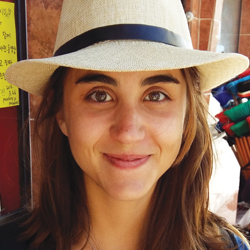 Maria Fernanda Aguilar
Maria Fernanda Aguilar
Maria Fernanda Aguilar
Ph.D student, Argentina
Home institution: Laboratorio de Cultivos Celulares de la Facultad de Bioquímica y Ciencias Biológicas de la Universidad Nacional del Litoral
Host lab:Arturo Casadevall, Johns Hopkins Bloomberg School of Public Health
Research: I study the influence of Fc domain glycosylation on the affinity and neutralizing ability of an antibody-like molecule (scFv-Fc).
What I hope to gain from my PROLAB studies: I am excited to work with Dr. Casadevall´s team and gain experience and knowledge about structural analysis of antibodies using X-ray crystallography. Also, I hope to build networks that have a lasting impact on my career and contribute to my personal and cultural enrichment.
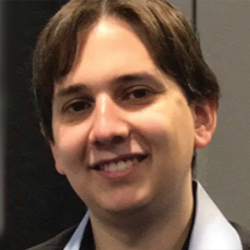 Guilherme Braga de Freitas
Guilherme Braga de Freitas
Guilherme Braga de Freitas
Ph.D. student, Brazil
Home institution: Federal University of Rio de Janeiro
Host lab:Marco A.M. Prado, University of Western Ontario
Research: I study the role of irisin in the central nervous system and in Alzheimer’s disease models.
What I hope to gain from my PROLAB studies: Studying abroad represents a change of environment and an opportunity to improve knowledge about ourselves. Moreover, it enhances networking, which may be a career boost. Thus, this opportunity will help me find potential ways to follow up with my research and will contribute to my personal development.
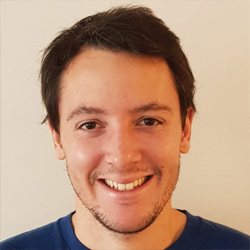 Guillermo Eastman
Guillermo Eastman
Guillermo Eastman
Ph.D. student, Uruguay
Home institution: Instituto de Investigaciones Biológicas Clemente Estable
Host lab:George S. Bloom, University of Virginia
Research: I’m focusing on translation regulation in neurons by genomics approaches.
What I hope to gain from my PROLAB studies: This opportunity will be a great experience for me to learn about Alzheimer’s disease models and incorporate my background in genomics into the ongoing project. Also, it will be an invaluable opportunity to interact with other researchers and start to think about interdisciplinary collaborative projects.
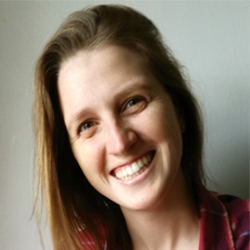 Carolina Fabbri
Carolina Fabbri
Carolina Fabbri
Ph.D. student, Argentina
Home institution: Institute of Molecular and Cellular Biology of Rosario
Host lab:Juan A. Hermoso, Consejo Superior de Investigaciones Cientificas, Madrid
Research: I study the functional characterization of the sensor proteins of the beta-lactam resistance systems of Staphylococcus aureus.
What I hope to gain from my PROLAB studies: Studies abroad will allow me to expand my knowledge in crystallography of membrane proteins, which is a very useful technique not only for my research project but also for my group. I will be able to learn from experts in the field, in a challenging setting, using state-of-the-art techniques.
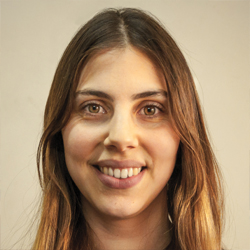 Mercedes Garrido
Mercedes Garrido
Mercedes Garrido
Ph.D. student, Argentina
Home institution: National Institute for Agricultural Research, University of Buenos Aires
Host lab:Gregg Beckham, National Bioenergy Center, National Renewable Energy Laboratory
Research: I work on development of microbial enzymatic cellulolytic and xylanolitic complexes for biomass saccharification.
What I hope to gain from my PROLAB studies: I hope to learn new techniques in fungal molecular biology and enzyme characterization, interact with an interdisciplinary team of biochemists, chemists and chemical engineers, and establish a strong working relationship between the agrobiotechnology laboratory at the University of Buenos Aires, the bioenergy laboratory in Argentina´s National Institute for Agricultural Research and the National Renewable Energy Laboratory in the U.S.
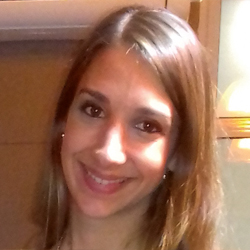 Laura Navas
Laura Navas
Laura Navas
postdoctoral fellow, Argentina
Home institution: Instituto de Microbiología y Zoología Agrícola , Instituto Nacional de Tecnología Agropecuaria
Host lab:Lindsay D. Eltis, University of British Columbia, Vancouver
Research: I study the characterization of thermophilic bacterial laccases for biomass valorization.
What I hope to gain from my PROLAB studies: I wish to do collaborative work with specialized scientists and learn techniques to bring back to my laboratory. I hope the project will provide important insights into the activity of thermostable bacterial laccases and the molecular basis for these activities, facilitating the development of biomass-transforming technologies based on these enzymes. Such technologies are critical for developing sustainable biorefineries and the global bioeconomy.
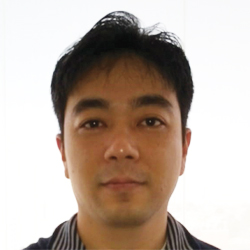 Fernando Ogata
Fernando Ogata
Fernando Ogata
postdoctoral fellow, Brazil
Home institution: Universidade Federal de São Paulo
Host lab:Vivien J. Coulson−Thomas, University of Houston
Research: I study the influence of glycosaminoglycans on the behavior of the thioredoxin system.
What I hope to gain from my PROLAB studies: Thioredoxin system–deficient animals (genetically modified) had their transcriptome analyzed. These data suggest a change in glycosaminoglycan biosynthesis enzymes and core proteins of proteoglycans. These changes will be analyzed with Dr. Coulson-Thomas, an expert in the field of glycobiology.
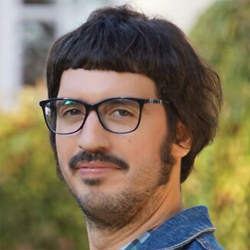 Diego Quiroga Roger
Diego Quiroga Roger
Diego Quiroga Roger
postdoctoral fellow, Chile
Home institution: Universidad de Chile
Host lab:Susan Marqusee, University of California, Berkeley
Research: The aim of my project is to understand the importance of strain in catalysis, determining the effect of the forces involved in the conformational changes associated to ligand binding and catalysis, considering the strain-induced theory as the catalytic framework using Aquifex aeolicus adenylate kinase as a model enzyme.
What I hope to gain from my PROLAB studies: I believe that there is a unique opportunity to advance understanding of the relation between protein function and structure, applying a feasible and novel approach to determine the forces and energies ruling catalysis. I trust that we will achieve this, demonstrating that researchers from Chile can answer important scientific questions.
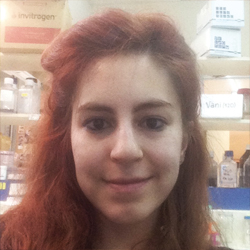 Luciana Sampieri
Luciana Sampieri
Luciana Sampieri
Ph.D. student, Argentina
Home institution: School of Chemistry, National University of Córdoba
Host lab:Juan S. Bonifacino, National Institute of Child Health and Human Development, National Institutes of Health
Research: I study changes in CREB3L2 transcription factor in cell differentiation models.
What I hope to gain from my PROLAB studies: I hope that interaction with scientists from a foreign and prestigious laboratory will give me more confidence in myself as well as increase my academic experience. I would like to gain more perspective by taking in every positive habit and piece of advice I learn during my stay in the host lab. Finally, I hope to bring back to my home institution everything I learn and apply it to improve the quality of my own and my colleagues’ work.
Enjoy reading ASBMB Today?
Become a member to receive the print edition four times a year and the digital edition monthly.
Learn moreGet the latest from ASBMB Today
Enter your email address, and we’ll send you a weekly email with recent articles, interviews and more.
Latest in People
People highlights or most popular articles

Richard Silverman to speak at ASBMB 2025
Richard Silverman and Melissa Moore are the featured speakers at the ASBMB annual meeting to be held April 12-15 in Chicago.

Women’s History Month: Educating and inspiring generations
Through early classroom experiences, undergraduate education and advanced research training, women leaders are shaping a more inclusive and supportive scientific community.

ASBMB honors Lawrence Tabak with public service award
He will deliver prerecorded remarks at the 2025 ASBMB Annual Meeting in Chicago.
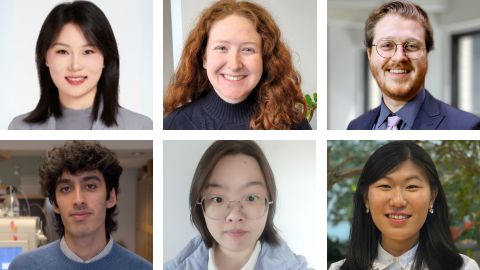
ASBMB names 2025 JBC/Tabor Award winners
The six awardees are first authors of outstanding papers published in 2024 in the Journal of Biological Chemistry.

Daniel N. Hebert (1962–2024)
Daniel Hebert’s colleagues remember the passionate glycobiologistscientist, caring mentor and kind friend.

In memoriam: Daniel N. Hebert
He was a professor at the University of Massachusetts Amherst, who discovered the glycan code that facilitates protein folding, maturation and quality control in the endoplasmic reticulum.
